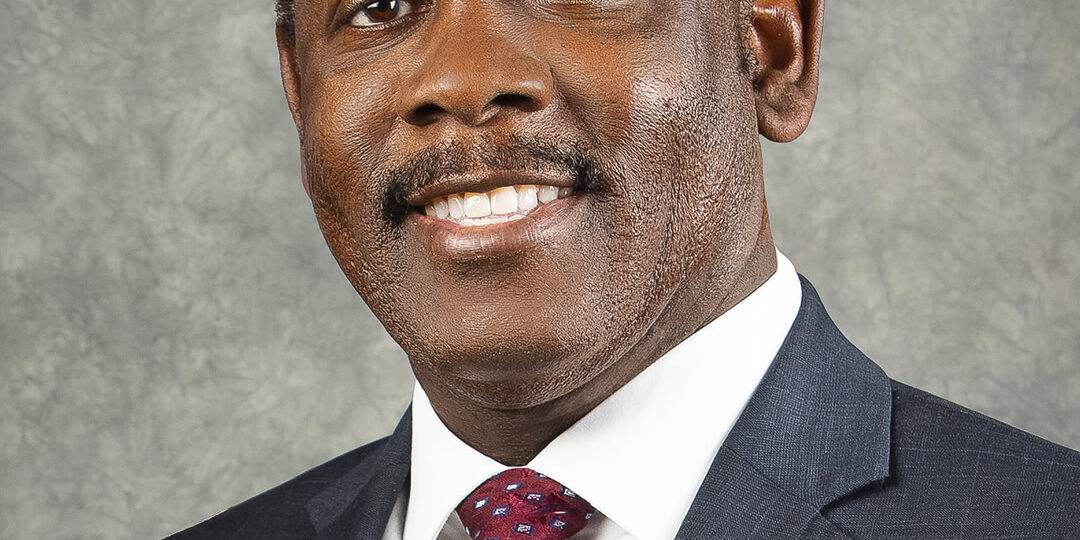By STEPHEN HUDAK
Four weeks after Orange County Mayor Jerry Demings ordered all 1.3 million Orange County residents to stay home, he’s beginning the delicate task of determining how and when to lift that order so the gears of the region’s tourism-driven economy can start turning again in the wake of the coronavirus.
Demings is expected to announce today who will make up a group of leaders to help him plan the reopening of local businesses. More than 45 companies and civic organizations ? from global corporations to mom-and-pop shops — have requested a seat on the mayor’s panel, which will likely practice social-distancing by meeting through video conferences.
“This is probably the toughest decision every single public official will make, not only locally, but around the country,” said Angel de la Portilla, a business consultant and lobbyist whose clients include Rosen Hotels, Westgate Resorts, Andretti’s and Mango’s Orlando. “When do you reopen and how do you reopen to ensure we do not have another outbreak?”
Demings said this week he could see many businesses reopen as soon as early June and said he “feels better every day about the prospects of reopening soon than later.”
Pressure to reopen closed restaurants, shops and other businesses is mounting as some are teetering on collapse amid a pandemic which has spawned over 660 COVID-19 deaths in Florida, including 34 in Central Florida and 21 in Orange County, and has produced the worst two months in the tourism industry’s history.
But Demings has been careful to caution that dropping social distancing restrictions too quickly could cause another shutdown brought by another wave of infections.
“We’re still not out of the woods,” Demings said.
Orange County’s hospital systems are optimistic they have dodged the worst projections, but an economic reboot could be tricky.
Half of Central Florida’s small businesses had 12 weeks or less of capital to sustain them through stay-at-home orders first imposed in Orange on March 26 and then by Gov. Ron DeSantis statewide on April 3, said Tim Guiliani, president and CEO of the Orlando Economic Partnership, the latest incarnation of the local Chamber of Commerce and an economic development group that represents seven counties across the region.
A survey by the group designed to measure the toll of the coronavirus crisis on Central Florida businesses revealed that 87 percent have felt the pandemic’s negative impacts and 9 percent had already exhausted their cash reserves. About 57% of companies in the survey were concerned about meeting payroll obligations.
Meanwhile, two lifelines for small businesses also have run out of money — the federal Paycheck Protection Program and a state-funded emergency loan program.
The Paycheck Protection Program is the largest small-business relief package in American history.
The Small Business Administration distributed more than a million loans through the program and processed $247 billion in requests.
Florida handed out emergency loans to 1,000 or so small businesses. About 37,000 others who applied for the state-funded relief will get nothing.
The $50,000 interest-free loans, sometimes called bridge loans, are usually available to businesses impacted by hurricanes.
“There are few if any industries that are immune to the virus,” said Orlando Mayor Buddy Dyer, who participated Thursday in a webinar with Guiliani to discuss the impact of the coronavirus shutdown on the region’s hundreds of small businesses. “They’re at the heart of everything we do as a community … They’re our quality of life; they’re owned by our neighbors; they employ our friends and our family members; and we know that businesses and friends are hurting from the impacts of this virus.”
Dyer said Central Florida’s tourism-dominated economy will hinge largely on reopening decisions by Walt Disney World and Universal Orlando.
Disney and Universal Orlando shuttered their Orlando parks on March 16 to help slow the spread of the virus. Representatives from the parks, which help make Orlando the most visited city in the nation, are likely to be key players in Demings’ decision.
Dyer noted both theme parks have operations in China, where the pandemic originated, and can share “their experiences with us on what went right and what went wrong there in terms of bringing that country back up.”
“They have lessons learned already,” he said.
Disney closed its resort in Shanghai in January and began a phased reopening on March 9. China’s Disneyland park remains closed until further notice, according to the company’s web site, but shopping, dining and hotel space is now operating with limited capacity and reduced hours. Guests must undergo health and temperature screenings before they enter the resort and are required to wear masks except when dining, the company said.
Orlando businessman Harold Mills, who served as co-chairman of Demings’ transition team, said the new advisory group must make data the foundation of its decisions.
He said they also may need to adopt new protocols for business operations including reducing allowable capacities at restaurants or requiring staff to wear face-masks.
“It’s important we don’t reignite another outbreak,” Mills said.
Reopening the economy while protecting a growing and diverse community against a deadly virus will be a difficult balancing act, said William Dymond, who provides legal advice to the hotel, resort and leisure industry as CEO & president of Lowndes, Drosdick, Doster, Kantor & Reed in Orlando.
“This thing’s going to be around for a long time so we’re going to have to learn how to deal with it,” he said.
To contact Stephen Hudak, call 407-650-6361 or email shudak@orlandosentinel.com
Source: Orlando Sentinel
To see the source article, click here.*
*This link may be pointing to an external website out of our control; therefore, this link may become broken at any time.
